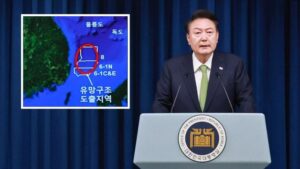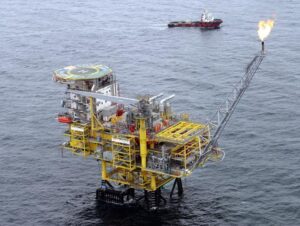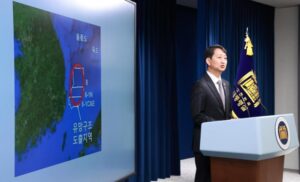South Korea Offshore Oil & Gas Exploration Kicks off
The South Korean government has approved a large scale project of offshore exploration and drilling in the reserve off Yeongil Bay in Pohang to tap the country’s massive gas and oil reserves estimated at 14 billion barrels (bbls0 . This may turn out to be one of the largest hydrocarbon reserves in the world situated over 600 meters below water. South Korea is one of the largest importers of hydrocarbons.The South Korean government has assigned the matter to Act-Geo deep-sea technology consultancy for a preliminary review of the geophysics study . The plan is to drill 5 boreholes at an average cost of 100 billion won ($73 million) each. Initially the first borehole project will commence in December and the results may appear by June next year The value of this reserve is estimated at $1.6 trillion and will meet the country’s gas requirement for the next 29 years. .
 Credit;Korea Times
Credit;Korea Times
Seouls’ Commercial Production History
Typical development of an oil and gas field has 3 stages namely geophysical survey, exploration and drilling and finally commercial development based on the results of drilling .Construction of commercial drilling facilities are likely to commence between the period 2027 and 2028 thereby allowing commercial development of the well site by the year 2035.
 Credit ; Korea Times
Credit ; Korea Times
South Korea’s first gas field discovery took place in the East Sea in the year 1998 followed by Korea National Oil Corporation achieving commercial production in the period of 2004 and 2010.This period saw a revenue of 2.6 trillion won . The scale of the oil and gas estimated to be available under the East Sea is more than 300 times the size of the East Sea gas field discovered in the late 1990s.
Impact on Korean Stock Exchange
The share values of companies including Korea National Oil Corporation, Daesung Energy, Dongyang Steel Pipe and Korea Gas Corporation breached the upper limit for share prices.
 Credit;Korea Times
Credit;Korea Times
Environmental Concerns
Environmental lobbies came down hard on President Yoon Suk Yeol exploration drilling decision agitating that it would be impossible for Korea to achieve its carbon neutrality goal by 2050 if the boreholes commence production after the year 2035 as their commercial production life would run for almost 30 years. The International Energy Agency has been advising to curtail hydrocarbon production after the year 2021 in order to attain the goal of carbon neutrality by 2050.
Author ; Nadir Mumtaz
Credit:Sources
https://www.koreaherald.com/view.php?ud=20240603050562
https://world.kbs.co.kr/service/news_view.htm?lang=e&Seq_Code=185817
https://www.koreatimes.co.kr/www/tech/2024/06/419_375889.html

Leave A Comment